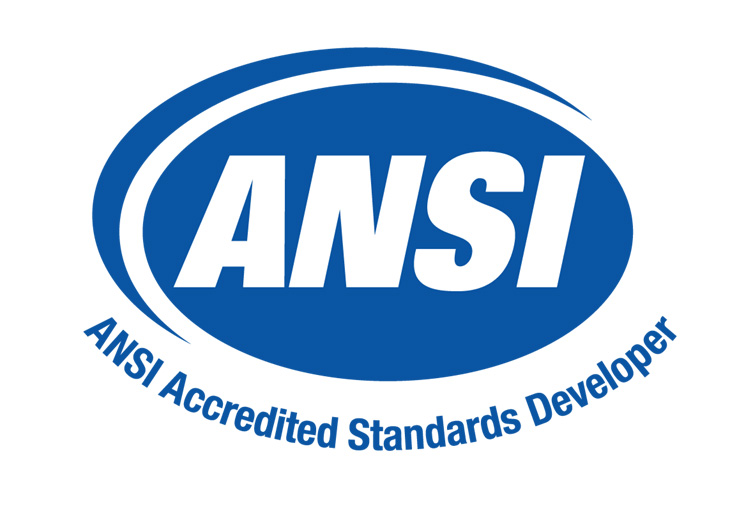Modular Interface Standards
In December 2025, the CfOC Consensus Committee was seated and began development of the new CfOC/ICC 1220-202x, Standard on Configurations and Connections for Off-Site Construction. Please see the Public Documents section below for membership roster, meeting notices, agendas, notes, and public drafts. Interested parties should sign up here to be added to an email distribution list to receive Standard related notices.
In April 2025, the CfOC Consensus Committee began development of the new CfOC/ICC 1220-202x, Standard on Configurations and Connections for Off-Site Construction. Interested parties should sign up here to be added to an email distribution list to receive Standard related notices.
CfOC/ICC 1220-202x, provides requirements for the location and specifications of module-to-module and building-to-module connections for essential building systems including structural, plumbing, electrical, mechanical, fire protection, and data. It also provides for the standardization of dimensions of modular components. This Standard includes componentized, panelized, and modularized elements. The standard is intended to serve as design criteria adopted by owners, designers, manufacturers, lenders, and governments to support efficiency and certainty in the delivery of off-site construction components and projects. The standard will leverage existing standards for interconnections where available.
In April 2025, the CfOC and the International Code Council (ICC) agreed to collaborate on the development and deployment of the CfOC/ICC 1220-202x Standard.
In February 2025, the CfOC was approved as an Accredited Standards Developer (ASD) of the American National Standards Institute (ANSI).
CfOC Consensus Committee Documents
- Administration
- Membership Roster
- Subgroup creation and definition
- Subgroup Identification
- Meeting Notices
- Meeting Notes and Agendas
- Public Comments Drafts
ANSI Accredited Standards Developer
The Center’s mission focuses on introducing urgently needed open-source, collaboratively drafted standards. To support that focus, the Center is an Accredited Standards Developer of the American National Standards Institute (ANSI). The Center is committed to adhering to ANSI’s Essential Requirements for openness, balance, coordination, consensus, and due process. Participation of the various stakeholders in an accessible, equitable, and responsive environment is crucial in developing consensus for an American National Standard.
The current version of the Center for Offsite Construction Consensus Procedures can be found here.
The Center invites interested parties to collaborate in our standards development processes, please contact Managing Director Matt Ford at mford05@nyit.edu for more information.

CfOC-ICC Collaboration
The CfOC leads this initiative through a partnership agreement with the International Code Council (ICC). This is a formative industry partnership that the CfOC is excited to pursue since:
- Both organizations are ANSI-accredited Standards Developers (ASDs); and
- Both organizations believe it is important to develop standards that support the expansion of industrialized and off-site construction of buildings; and
- Both organizations believe one of the best ways to achieve higher levels of quality, sustainability, resilience, and affordability in buildings is through the promulgation of design standards for off-site construction component design through the development of ANSI American National Standards.
Modular Interface Standards Problem
Project White Paper
“Open-Source Connectivity Standards for the U.S. Offsite Construction Industry” (February 2024)
Overview
Accelerating the adoption of offsite construction practices (and productized housing elements) by standardizing the connections between buildings and modules and between modules.
Working to unlock the power of collaboration to both address the U.S. affordable housing crisis and speed commercial office space conversions.
Speeding open-source interface standards through the American National Standards Institute (ANSI), International Organization for Standardization (ISO), and/or International Code Council (ICC) adoption. Sharing the benefits of a reorganized marketplace – to rapidly disseminate the production efficiencies and sustainability benefits.
Executive Summary
Problem
Ninety-seven percent of U.S. housing is delivered with service-based contracts, requiring high levels of coordination between an average of 23 subcontractors. The alternative to services is products. Delivering the most complex parts—the “tech core” of a home—as volumetric modular elements has not scaled in America, in spite of decades of effort. Individual firms have not established the technical norms needed to get these large products to work together.
Solution
Plugging a firm’s products into another firm’s host product is a well-known problem across many other industries. Following the model of how the USB Standard exploded the computer peripherals marketplace, The Center for Offsite Construction will author an open-source standard governing how any “tech-core” room-sized product can plug into the utilities of any host building. Through an ANSI-accredited, consensus-driven effort, “highway lanes” are defined for standardizing the utilities interface between building services and dwelling units.
Impact
- Spur nationwide housing construction: reduce construction costs by 15–20 percent with kitchens, bathrooms, and utility rooms purchased as products, with a manufacturer’s suggested retail price, and installed in minutes. Countless housing projects were built that used to not pencil out.
- Upgrade sustainability in construction: 30 percent less waste, with 40–60 percent less CO2, to deliver the same elements.
- Paradigm change in design and construction: larger delivered products (with integrated electric, plumbing, etc.), delivered with manufacturing efficiency. Tier 1, 2, and 3 supply chain organization.
- Innovations in education: as New York Tech grows to an R2 research institution, the Center prepares its undergraduate and graduate research fellows with the entrepreneurial and innovative spirit needed to find solutions for the larger world.
Project Pace and Funding
To speed up standard writing, New York Tech’s CfOC assumes all of the direct costs incurred in the process of developing the Standards.
The standard is being developed in accordance with CfOC’s Center for Offsite Construction Consensus Procedures, which were approved by ANSI on February 11, 2025.
To help speed this process, the CfOC is circulating project-administering grant applications. For general inquiries and copies of these grant materials, please contact Jason Van Nest at jvannest@nyit.edu.
Location
Center for Offsite Construction
New York Tech School of Architecture and Design
1855 Broadway, Room 1108
New York City, N.Y. 10023
USA